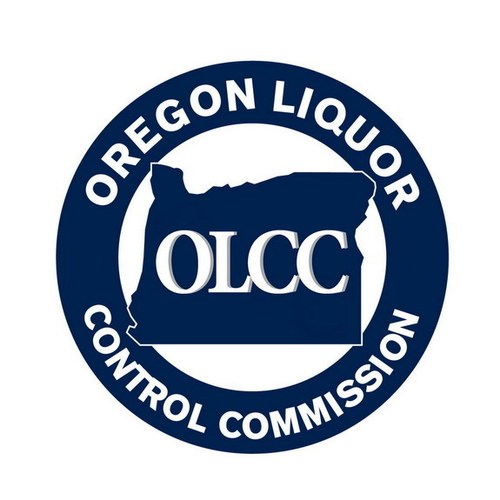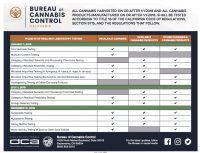There is certainly, in retrospect, much to be proud about in Canada – home of one of the most disruptive international cannabis industries in the world. And certainly an early mover.
That starts with having the national mojo to begin this journey in the first place, not to mention pivot and even admit faults along the way. For all the complaints and whinges, however on the ground, most Canadians are proud that they tackled the canna question at a federal level.
As the industry now does a bit of an annual review and revisit, what are some of the largest accomplishments, takeaways (and let’s be honest, major f*ckups) so far? And where is this all headed as the industry at least tries to gear up for another year, if not quite Cannabis 2.0?
The Big Bravos
Launching in the first place. Yes Full Monty Recreational was scary, and delayed a few months last year. And even though there have been many problems (retail outlets, online sales, privacy, supply chain issues in every direction, ex im, foreign markets and etc.), it is up and running.
In comparison, the Brits have been haranguing over Brexit for the last three years and are still not really there.
 Further, it is also apparent that the agencies in charge of the new industry are themselves giving a bit of a shake after CannaTitanic (CannTrust). That was embarrassing for them too, although of course, while a bit of a negative compliment, the recall system seems to work.
Further, it is also apparent that the agencies in charge of the new industry are themselves giving a bit of a shake after CannaTitanic (CannTrust). That was embarrassing for them too, although of course, while a bit of a negative compliment, the recall system seems to work.
Even if it needs a few jump starts via whistleblowing.
That in and of itself is a fact that is still in the room, although perhaps the pancaking of the stock price of most of the public industry of late was also another much needed wakeup call.
The Devil In The Details
Domestic Requirements. Health Canada is getting hip to the fact that the industry needs a bit more of a heavy hand. See the book thrown at CannTrust. No matter what, Canadians are demanding to know where their cannabis comes from, and further are also demanding that it be at least free of pesticides that can harm them.
 Licensing. Many cannapreneuers are complaining, still, about the delays in licensing, particularly for retail outlets in the provinces who are taking the cannabull by the horns. That said, there are still lots of enterprises who are perfectly happy to dodge the requirements all together and sell to the black or gray market. No licensing fees, and no taxes is a wonderful dream, but that is not exactly how regulated democratic capitalism works – at least at this level.
Licensing. Many cannapreneuers are complaining, still, about the delays in licensing, particularly for retail outlets in the provinces who are taking the cannabull by the horns. That said, there are still lots of enterprises who are perfectly happy to dodge the requirements all together and sell to the black or gray market. No licensing fees, and no taxes is a wonderful dream, but that is not exactly how regulated democratic capitalism works – at least at this level.
Supply Chain Logistics and Related Technologies. Canadians are struggling to implement a regulated industry in a country where patient home grow is constitutionally protected, and in an environment where who can sell what, and to whom including online, is still evolving. Predictably, no matter how groovy the solution works at home, (or the U.S.), no it will not fly in Europe. See GDPR regs, for starters.
Seed Culture (Aka Strain Protection). No matter how much the lawyers in the colonies are gearing up to sue each other over Huey’s Half Baked, in Europe, there are tomato and pepper farmers who are laughing, literally, all the way to the bank on this one. While hip to be a “strain defender,” the reality in a medical market looking for cheap cannabinoids is rather different. Effective, clean product, which can be reproduced reliably and cheaply, is the name of the game. Girl Scout Cookies, and such ilks will be a long time in coming as anything but highly expensive, niche products you can find in a Dutch Coffee Shop.
 Domestic Requirements Vs International Export. Canadian standards, so far, have been widely divergent in an environment where exports to Europe in particular are part of the story for the biggest companies. That said, GMP, and in particular EU GMP, has become at least a buzzword if not a standard to live up to.
Domestic Requirements Vs International Export. Canadian standards, so far, have been widely divergent in an environment where exports to Europe in particular are part of the story for the biggest companies. That said, GMP, and in particular EU GMP, has become at least a buzzword if not a standard to live up to.
Privacy. California might be considering its own form of GDPR (European privacy legislation) but so far, the industry has largely failed to protect consumers (from themselves). Ideas about owning huge data troves on cannabis users for someone else’s profit are still very much in the room. After all, data is the new oil, whether people know their data is being harvested or not. And just like big oil has done for most of its existence, those in the driver’s seat so far show little compunction about harvesting personal information, to become in the words of the now departed CEO of Canopy Growth Bruce Linton, “the Google of Cannabis.” Won’t happen. Starting with the fact that in not just Europe but now even California, people, far beyond pot users are tired of a world where privacy is a second class right.
While the issue first hit in Canada on the recreational side, the reality is that companies know who their clients and patients are in a way that is not only disturbing but increasingly being challenged.



































